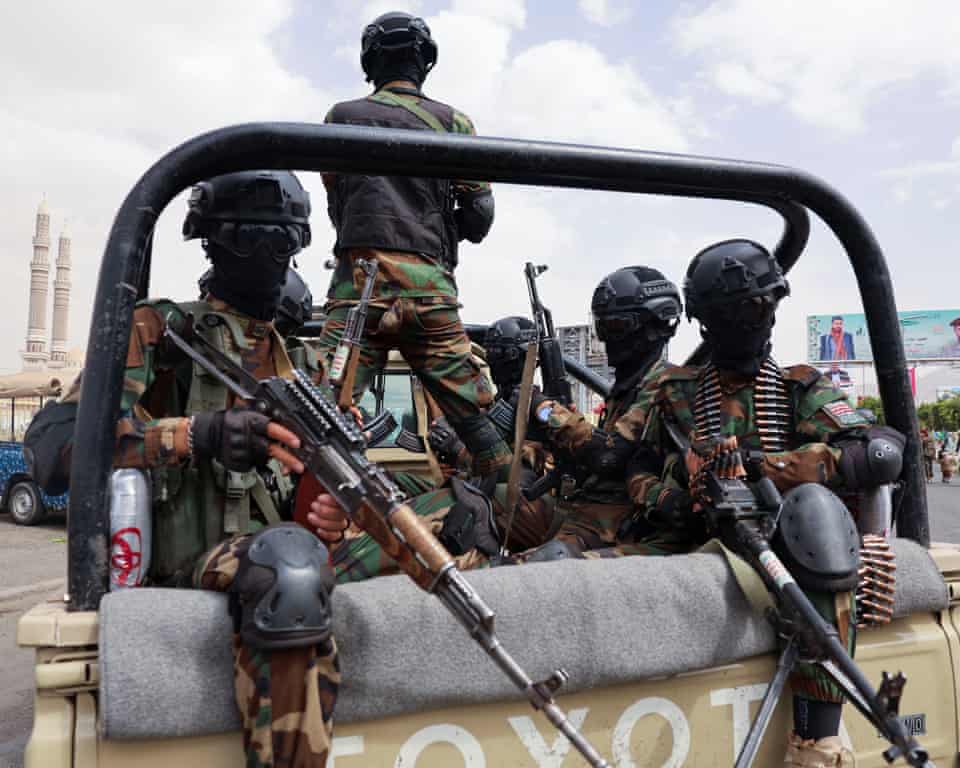Arms dealers linked to Houthi militants in Yemen are using social media platforms X and WhatsApp to traffic weapons, including US-made arms, in apparent breach of both companies’ policies, according to a new report.
The investigation, conducted by the Washington DC-based Tech Transparency Project (TTP), uncovered that more than 130 Yemen-based X accounts and 67 WhatsApp business accounts have been actively offering military-grade weapons, including high-powered rifles, grenade launchers, and US-manufactured firearms, for sale.
Some of the weapons displayed bore markings such as “Property of US Govt” and “Nato,” raising alarm among experts and policymakers about how Western arms have ended up in Houthi-controlled areas.
The Houthis, an Iran-backed group designated as a terrorist organisation by the United States, Canada and other governments, have held significant portions of Yemen since 2014. The group’s rise has coincided with the outbreak of Yemen’s ongoing civil war, and its links to Tehran have further heightened geopolitical tensions across the region.
TTP’s report highlights the alarming ease with which arms dealers have used Meta’s WhatsApp and Elon Musk’s X (formerly Twitter) to promote and sell weapons. Notably, many of these accounts have subscribed to premium services, X Premium and WhatsApp Business, despite platform rules prohibiting weapons sales and the use of services by designated terrorist groups.
“X and WhatsApp both have policies against weapons sales but they are allowing arms traders linked to a US-designated terrorist group to traffic weapons on their platforms,” said Katie Paul, TTP’s director. “In some cases these companies may be profiting off violations of their own policies that create risks for US national security.”
More than half of the X accounts identified listed their location as Sana’a, the Houthi-controlled capital, and many frequently shared pro-Houthi propaganda. Some displayed weapons inside containers marked with the Houthi slogan: “God is great, death to America, death to Israel, curse be upon the Jews, victory to Islam.”
In one case, an arms dealer used X Premium’s extended video feature to post an “unboxing” of an M249 SAW, a light machine gun used by US forces. Other accounts used X’s tipping feature to collect donations, while several promoted weapons such as AR-15 rifles and Glock pistols in replies to posts by Elon Musk himself.
X declined to comment on the findings when contacted by The Guardian. Despite strict policies that prohibit the promotion of terrorist groups or their activities, advertising content was found beneath posts by arms dealers, including an ad for Tesla accessories beneath a post advertising an American-made handgun.
Since Elon Musk’s 2022 acquisition of X, the platform has laid off the majority of its trust and safety team, significantly scaling back content moderation. TTP previously reported that over 200 accounts affiliated with terrorist or sanctioned groups had received blue ticks and access to premium features.
WhatsApp, also owned by Meta, similarly failed to prevent the use of its platform by arms dealers. Several dealers used WhatsApp’s “catalogue” feature to showcase firearms, including a Glock pistol decorated with images of the White House, Lincoln Memorial, and the phrase “Preserve, Protect, Defend.”
A WhatsApp spokesperson stated, “If we identify or are made aware of US-designated terrorist organisations attempting to use our service, we will take appropriate action, including banning accounts, to comply with our legal obligations.” Following The Guardian’s report, two accounts were removed, but the company did not explain how they bypassed existing review mechanisms.
Meta has also faced criticism for its mass layoffs in recent years, many of which affected teams focused on platform safety and moderation. In January, the company announced a rollback in content moderation policies, a move widely interpreted as a concession to political pressure, particularly from critics of social media censorship such as US president Donald Trump.
TTP noted that the majority of accounts linked to arms trafficking were created after these layoffs.



